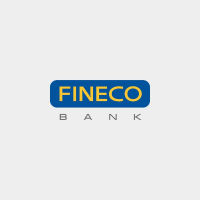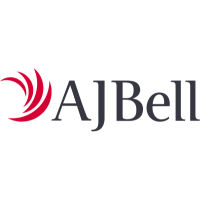Putting your money into an investment fund is a wise decision. It lets you diversify your portfolio and slowly build a nest egg that grows over time.
However, many people are worried about the impact their investments have on the world - specifically investments in less-than-scrupulous companies. With an ethical investment fund, you get the best of both worlds.
Ethical investment funds not only deliver financial returns but also align with your values. They let you build a strong portfolio while making a positive impact on society and the environment.
In this article, we will provide an overview of the best ethical investment funds, and go into detail on what makes them stand out.
Best Ethical Investment Funds at a Glance
The below table provides you with a list of the top ethical investment funds you can invest in.
Price | Fund Size | Ongoing charge | 5-year performance | |
|---|---|---|---|---|
Impax Environmental Markets (Ireland) Fund X GBP | £2.23 | £767.66m | 0.91% | +8.94% |
Guinness Sustainable Energy Y GBP Accumulation | £20.73 | £974.02m | 0.67% | +18.41% |
Prudential Royal London Sustainable Leaders A-Pen | £3.19 | £3.26m | 1.30% | +6.76% |
Fundsmith Sustainable Equity Fund T Inc | £1.38 | £3.19m | 1.05% | +6.90%*(3 year) |
Fidelity UMMT Baillie Gifford Positive Change Fund | £0.25 | N/A | 0.60%(max annual) | +23.72%**(1 year) |
M&G Positive Impact Fund Sterling PP GBP Inc | £1.41 | £204.28m | 0.60% | +6.89%***(3 year) |
*Data as of February 2026.
Impax Environmental Markets (Ireland) Fund X GBP Overview
First on our list is the Impax Environmental Markets fund which is considered one of the largest funds in the UK that focuses on the environment while managing more than half a million pounds.
It has seen outstanding growth and generated significant value for its shareholders.
All of its investments go to companies that have at least 50% of its revenue generated through environmental initiatives. This includes anything from reducing pollution and waste management to investments in energy efficiency and water infrastructure.
Top holdings
PTC Inc
Spirax-Sarco Engineering PLC
Bucher Industries AG
Clean Harbors Inc
Graphic Packaging Holding Co
Guinness Sustainable Energy Y GBP Accumulation Overview
This is a wonderful fund for people who care about their finances, but also care about the environment.
The Guinness Sustainable Energy Fund focuses on sustainable energy sources. This includes generation, storage, consumption, and efficiency improvement of sustainable energy sources.
It encompasses pretty much every type of green energy source, including wind, hydro, geothermal, biomass, biofuel, and of course, solar.
Top holdings
Iberdrola SA
LG Chem Ltd
Infineon Technologies AG
Hubbell Inc
First Solar Inc
Prudential Royal London Sustainable Leaders A-Pen Overview
It is one of the top-performing ethical funds in the UK of the last decade. This fund focuses not only on environmental sectors but also on human welfare and quality of life.
The Prudential Royal London fund also avoids companies that have 10% or more of their profits coming from animal fur products, gambling, military applications, and pornography.
Top holdings
AstraZeneca PLC
Compass Group PLC
SSE PLC
London Stock Exchange Group PLC
Rentokil Initial PLC
Fundsmith Sustainable Equity Fund T Inc Overview
This fund bypasses sectors such as aerospace and military applications. It invests only in companies that the fund managers find are ethical in their approach to environmental, social, and governance (ESG) policies.
Looking at the investment side, the fund has outperformed the average return of funds in the IA Global sector and proved to have a strong long-term focus.
Top holdings
Novo Nordisk A/S
L'Oreal SA
Automatic Data Processing Inc
Johnson & Johnson
Waters Corp
UMMT Baillie Gifford Positive Change Fund Overview
Baillie Gifford invests in companies that provide solutions to the 260 million children across the globe who do not have access to formal education. Their motive is to reduce the impact of human activity on the environment by investing in companies that can control climate change.
This fund also focuses on medical research companies that follow proactive and preventive approaches and those which finance low-cost healthcare and low-cost goods for the low-income demographic.
Top holdings
MercadoLibre Inc
ASML Holding NV
Taiwan Semiconductor Manufacturing Co Ltd
DexCom Inc
Shopify Inc Registered Shs -A- Subord Vtg
M&G Positive Impact Fund Sterling PP GBP Inc Overview
By investing in this fund, you invest in companies and sectors that work towards the improvement of education, healthcare, social inclusion, and quality of life for the poorest populations.
Note that it is similar to Baillie Gifford, but it is somewhat more risk-averse, in the sense that it does focus on low-income demographics, but it invests in emerging markets that are not significantly risky.
Top holdings
Novo Nordisk A/S
ON Semiconductor Corp
HDFC Bank Ltd
Johnson Controls International PLC
Solaredge Technologies Inc
How Did We Choose the Best Ethical Investment Funds?
With the rise of ethical consciousness, especially environmentally, ethical investment funds have grown in popularity. In the present times, there is a wide variety of ethical investment funds, some performing better than others. In our research, we have considered several factors when choosing the best ones.
These factors include:
ESG factors - ESG stands for environmental, social and governance factors. In other words, these funds focus on sustainable energy, environmental protection, and human rights.
Performance - Besides being ethical, all of the above funds have shown excellent performance. These have grown over the years and they will continue to do so in the foreseeable future.
Price - While some of the above funds are more expensive than others, all have an acceptable Net Asset Value for the average investor when we consider potential returns.
Ongoing charges - Similar to NAV, some funds do have higher fees than others, but all are acceptable for the average investor when we take their growth and potential into consideration.
Fund managers - All of the funds above are actively managed funds, handled by reputable managers and financial institutions, ensuring ethical and professional handling.
What Are ESG and Ethical Investment Funds?
In order to understand ESG and ethical investment funds, or ethical investing in general, one first needs to understand what investment funds are.
Investment funds are pooled investment vehicles that allow individuals and institutional investors to invest their money in a diversified portfolio of financial instruments, such as stocks, bonds, or other assets. These funds are managed by professional fund managers or investment firms.
There are multiple types of investment funds, such as index funds, ETFs, etc. They can be categorized by region, sector, type of asset, etc. This is where ESGs and ethical investment funds come in.
ESG and Ethical Investment Funds in Detail
ESG and ethical investment funds are terms that are often used interchangeably. ESG stands for environmental, social, and governance factors, which are considered when choosing the financial instruments that will form these funds.
Ethical investment funds consider at least one of these factors, but in practice, both terms are often used to refer to the same fund.
These investment funds are not necessarily limited by region or sector but rather choose their portfolio structure based on the ethics of the assets involved.
When building an ethical/ESG fund, financial instruments tied to companies and institutions that have a negative impact on the environment or society will be excluded or minimised. At the same time, those with a positive impact will be pursued and focused on.
There are several criteria to find if an investment fund is ethical or not
Environmental - Does the fund focus on companies that work towards, or promote, sustainable energy, ethical treatment of animals, mitigation of pollution, etc? Does the fund avoid companies that pose a threat to the environment?
Social - Does the fund focus on companies that promote human rights, education, and assistance to low-income demographics? Does it avoid companies that damage their local communities or practice some sort of discrimination?
Governing - Does the fund avoid companies that are not transparent, do not protect shareholder rights, or whose leadership is questionable?
Avoidance of unethical companies - Do the funds avoid or minimally use companies that follow unethical practices? This can refer to companies that have violated certain environmental, or human and worker rights practices, or that have a certain amount of their revenue come from unethical industries (like weapons manufacturing).
Why Are Ethical Investment Funds Increasing in Popularity?
Ethical investment funds have seen an increase in popularity. Some of the factors that lead people to build, and choose ethical investment funds are:
Risk management - Ethical investment funds that consider ESG factors can mitigate risks associated with poor ESG practices, such as environmental disasters or governance scandals, leading to potentially better risk-adjusted returns.
Regulatory compliance and sustainability- Ethical funds focusing on ESG factors can help investors align with evolving regulations. They avoid companies that may face penalties or restrictions due to non-compliance, reducing regulatory risk in their investment portfolios.
Long-term returns - Companies that follow regulations can be more sustainable, by avoiding regulatory penalties and maintaining a positive reputation.
Consumer and employee attraction - Ethical funds can attract socially conscious consumers and top talent, enhancing brand reputation and competitiveness. .
Societal impact - Investing in ethical funds means fostering a more sustainable and responsible business landscape.
Always keep in mind that no investment guarantees success and ethical funds are no different.
What Are the Benefits of Ethical Investment Funds over Traditional Investment Funds?
There is essentially only one key difference between an ethical investment fund and a regular one and that is- whether a specific financial instrument within the fund is ethical or not.
An ethical investment fund can be an index fund, an ETF, or a stock, on whatever region, sector, or company, as long as it does not make the world worse (or at least makes it better).
Pros
- Alignment with values - Ethical investment funds allow investors to align their investments with their personal values and beliefs, enabling them to support companies that prioritize social responsibility and ethical practices.
- A positive impact on the world - Ethical funds direct capital towards companies that are making a positive change in the world.
- Stability - Ethical funds adhere to regulations and ethical practices, which can remove the risk of scandals, controversies, poor governance, and potential fines that weaken a company’s performance.
- Greater long-term potential - Companies within ethical funds focus on sustainable business practices, have a positive reputation, and avoid regulatory issues.
- Growing Demand - Investors are becoming more ethically conscious, driving demand for ethical funds, which then contributes to market stability and furthers innovation.
Cons
- More expensive- They tend to be more expensive since costs are not cut by avoiding regulations and laws.
- A chance for lower returns - There is a chance that returns might be lower, or growth might be slower, due to ethical funds avoiding unethical companies, no matter how profitable they might be.
- Lower diversification- Ethical investment funds may have a narrower investment pool to choose from as compared to traditional funds; potentially limiting diversification.
Essentially, investors who do not believe ethical investment funds have a positive impact might get better returns at a lower cost. However, in the long term, it seems that ethical investment funds are the better choice.
The Future of Ethical Investment Funds and Investment Management
We also need to mention that it's becoming easier to assess just how ethical a company (and a fund) is. The advancement of technology specifically better data gathering and processing, leads to more transparent and precise investment management.
With these technological advancements and the fact that investors are holding companies to a higher standard, the future seems bright for ethical investment funds.
Choosing the Best Ethical Investment Fund for You
There are three factors you need to consider when choosing an ethical investment fund.
Performance of a fund - Perhaps the most important factor, you should be clear on how successful the fund was in the last few years. This can indicate (but far from a guarantee) its future performance as well.
Cost - Is the price of a specific ethical fund acceptable to you, both in terms of NAV and its associated charges?
Ethical focus - Are you happy with the holdings of a specific fund? Would you prefer a fund that focuses more on environmental issues, and its societal impact, and avoids certain sectors (like military defence or fracking)?
Trust and Security With Ethical Funds
There are several factors that need to be considered when choosing an investment fund, no matter if it's ethical or regular.
Primarily, the credibility and reputation of its fund manager, and the terms and conditions relevant to investors in case of any malfeasance.
Furthermore, you need to consider the credibility of the investment platform, financial institution, or broker you are using to make an investment, as well as their policies and measures that serve to protect you and your data.
The Regulatory Oversight of Funds - Are Ethical Funds More Secure?
In terms of investor protection, ethical funds are neither more, nor less, secure than a regular fund. They fall under the same regulations and oversight as the regular funds.
In the UK specifically, the Financial Conduct Authority (FCA) regulates the financial services industry.
What Happens if an Ethical Fund Goes Out of Business?
The details depend on the financial institution where you held your fund. With that being said, the entire process is identical to any other investment fund.
When a fund is no longer viable or the fund management company decides to close it, the fund enters a liquidation process. The assets are sold and the proceeds are distributed to the investors.
Note that the UK’s regulatory bodies ensure that the fund's closure follows applicable laws and regulations and that investors' rights are protected. These rights include:
The right to receive their proportionate share of the fund's remaining assets
The right to be provided with timely and accurate information about the liquidation process
Asset redemption and the transfer of assets are other processes that may come into action. If the liquidated fund is part of a larger fund management company, the assets might be transferred to a similar fund within the same company, keeping your asset exposure. However, the investor can also choose to have their shares redeemed, receiving earnings from the now-liquidated fund.
Keep in mind that there is always a risk when it comes to investing. A diligent investor needs to be aware of the terms and conditions of their investment and must be aware of all redemption and liquidation policies, as well as any associated fees and transfer regulations of their chosen fund.
What Fees Do You Pay for Ethical Investments?
When it comes to putting money into an investment fund, ethical or not, there are always certain fees associated with the process irrespective of your chosen regular broker, a financial institution, or an online investment platform. Besides the ongoing charges, which vary from fund to fund, there are also fees associated with your chosen intermediary.
The below table can give you a clear idea of what fees you can expect from the top investment platforms online.
Interactive Investor | Hargreaves Lansdown | Fineco Bank | AJ Bell | |
|---|---|---|---|---|
Fund Fees | £5.99 per trade for “Investor” and “Pension Builder” subscriptions,£3.99 per trade for Super Investor | 0.45% - 0% | 0.25% - 0% | 0.25% - 0% |
Currency Conversion Fees | 1.5% - 0.25% | 1.00% - 0.25%. | 0 (for online) | 0.75% - 0.25% |
Do Ethical Funds Come at a Higher Cost?
It's difficult to answer this question due to the many different ethical funds available on the UK market.
That being said, they tend to have higher charges than regular funds, due to their higher degree of compliance and the fact that they exclude unethical companies no matter how lucrative they can be.




